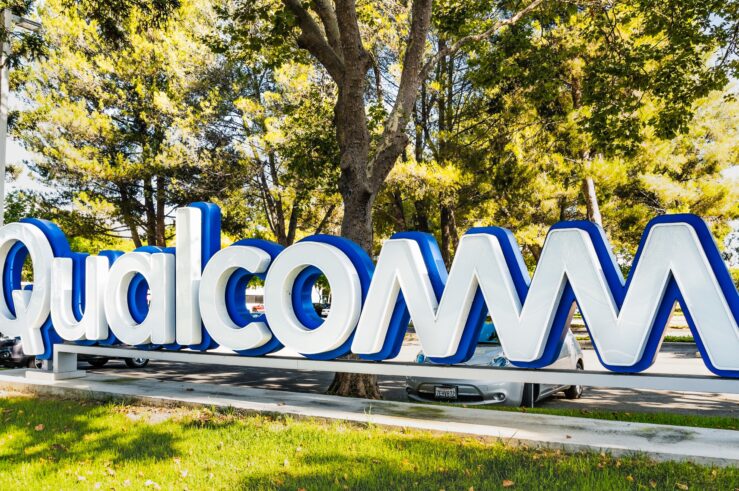Showing archive for: “Platforms”
What’s the Harm of Targeted Ads on Children’s Content Anyway?
The FTC’s recent YouTube settlement and $170 million fine related to charges that YouTube violated the Children’s Online Privacy Protection Act (COPPA) has the issue of targeted advertising back in the news. With an upcoming FTC workshop and COPPA Rule Review looming, it’s worth looking at this case in more detail and reconsidering COPPA’s 2013 ... What’s the Harm of Targeted Ads on Children’s Content Anyway?
The Digital Policy of the Next EU Commission: All roads Lead to Margrethe Vestager
Ursula von der Leyen has just announced the composition of the next European Commission. For tech firms, the headline is that Margrethe Vestager will not only retain her job as the head of DG Competition, she will also oversee the EU’s entire digital markets policy in her new role as Vice-President in charge of digital ... The Digital Policy of the Next EU Commission: All roads Lead to Margrethe Vestager
Kochland: An Inadvertent Paean to the Glories of the Free Market
A recently published book, “Kochland – The Secret History of Koch Industries and Corporate Power in America” by Christopher Leonard, presents a gripping account of relentless innovation and the power of the entrepreneur to overcome adversity in pursuit of delivering superior goods and services to the market while also reaping impressive profits. It’s truly an ... Kochland: An Inadvertent Paean to the Glories of the Free Market
The District Court’s FTC v. Qualcomm Decision Rests on Impermissible Inferences and Should Be Reversed
Last week the International Center for Law & Economics (ICLE) and twelve noted law and economics scholars filed an amicus brief in the Ninth Circuit in FTC v. Qualcomm, in support of appellant (Qualcomm) and urging reversal of the district court’s decision. The brief was authored by Geoffrey A. Manne, President & founder of ICLE, and ... The District Court’s FTC v. Qualcomm Decision Rests on Impermissible Inferences and Should Be Reversed
In FTC v. Qualcomm, Judge Koh Gets Lost in the Weeds
In his latest book, Tyler Cowen calls big business an “American anti-hero”. Cowen argues that the growing animosity towards successful technology firms is to a large extent unwarranted. After all, these companies have generated tremendous prosperity and jobs. Though it is less known to the public than its Silicon Valley counterparts, Qualcomm perfectly fits the ... In FTC v. Qualcomm, Judge Koh Gets Lost in the Weeds
Seven Things Netflix’s ‘The Great Hack’ Gets Wrong About the Facebook–Cambridge Analytica Data Scandal
And if David finds out the data beneath his profile, you’ll start to be able to connect the dots in various ways with Facebook and Cambridge Analytica and Trump and Brexit and all these loosely-connected entities. Because you get to see inside the beast, you get to see inside the system. This excerpt from the ... Seven Things Netflix’s ‘The Great Hack’ Gets Wrong About the Facebook–Cambridge Analytica Data Scandal
The Capitalist Paradox: How Cooperation Enables Free Market Competition
Paul H. Rubin is the Dobbs Professor of Economics Emeritus, Emory University, and President, Southern Economic Association, 2013 I want to thank Geoff for inviting me to blog about my new book. My book, The Capitalist Paradox: How Cooperation Enables Free Market Competition, Bombardier Books, 2019, has been published. The main question I address in this ... The Capitalist Paradox: How Cooperation Enables Free Market Competition
A Regulatory Failure of Imagination
Underpinning many policy disputes is a frequently rehearsed conflict of visions: Should we experiment with policies that are likely to lead to superior, but unknown, solutions, or should we should stick to well-worn policies, regardless of how poorly they fit current circumstances? This conflict is clearly visible in the debate over whether DOJ should continue ... A Regulatory Failure of Imagination
Why Don’t People Talk About Breaking Up Microsoft?
[This post is the seventh in an ongoing symposium on “Should We Break Up Big Tech?” that features analysis and opinion from various perspectives.] [This post is authored by Alec Stapp, Research Fellow at the International Center for Law & Economics] Should we break up Microsoft? In all the talk of breaking up “Big Tech,” ... Why Don’t People Talk About Breaking Up Microsoft?
Should We Break Up Big Tech? A Look Behind the (Political) Scenes
[This post is the sixth in an ongoing symposium on “Should We Break Up Big Tech?” that features analysis and opinion from various perspectives.] [This post is authored by Thibault Schrepel, Faculty Associate at the Berkman Center at Harvard University and Assistant Professor in European Economic Law at Utrecht University School of Law.] The pretense ... Should We Break Up Big Tech? A Look Behind the (Political) Scenes
Who’s the Real Destroyer of Retail
Treasury Secretary Steve Mnuchin recently claimed that Amazon has “destroyed the retail industry across the United States” and should be investigated for antitrust violations. The claim doesn’t pass the laugh test. What’s more, the allegation might more rightly be levelled at Mnuchin himself. Mnuchin. Is. Wrong. First, while Amazon’s share of online retail in the ... Who’s the Real Destroyer of Retail
Breaking up Facebook Would Be a Technical and Organizational Nightmare — and Would Almost Certainly Harm Consumers
[This post is the fifth in an ongoing symposium on “Should We Break Up Big Tech?” that features analysis and opinion from various perspectives.] [This post is authored by William Rinehart, Director of Technology and Innovation Policy at American Action Forum.] Back in May, the New York Times published an op-ed by Chris Hughes, one ... Breaking up Facebook Would Be a Technical and Organizational Nightmare — and Would Almost Certainly Harm Consumers






